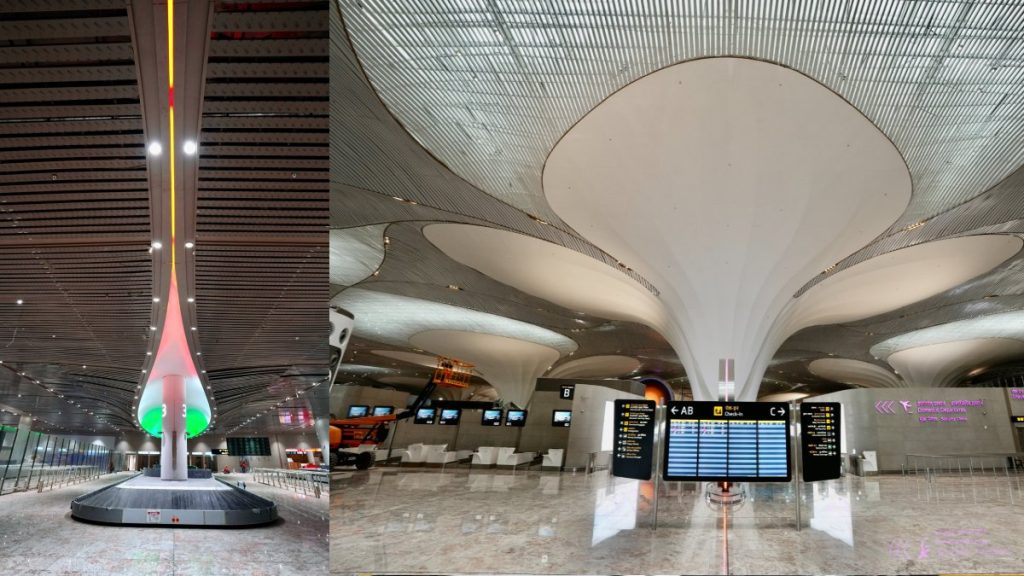Prime Minister Narendra Modi on Wednesday inaugurated Phase 1 of the Navi Mumbai International Airport. Built at a cost of Rs 19,650 crore under a public-private partnership between Adani Airports and CIDCO, it has an annual passenger handling capacity of 9 crore passengers and an annual cargo handling capacity of 3.25 MMT. This second international airport for the Mumbai Metropolitan Region aims to ease congestion at the Chhatrapati Shivaji Maharaj International Airport and elevate Mumbai’s status among global cities with multi-airport systems.
The inauguration ceremony attended by a host of dignitaries, government officials, and industry leaders, will formally declare the first phase of the greenfield airport operational. This ambitious project, developed to alleviate the increasing pressure on the Chhatrapati Shivaji Maharaj International Airport (CSMIA) in Mumbai, is poised to become a crucial aviation hub in Western India.
A Vision for Enhanced Connectivity
NMIA is designed to handle a substantial increase in passenger traffic and cargo operations, significantly boosting the region’s economic growth and logistical capabilities. Its strategic location in the Ulwe Kopar-Panvel area is expected to provide seamless connectivity to Mumbai, Navi Mumbai, and surrounding industrial belts.
The airport boasts state-of-the-art facilities, including modern terminals, advanced air traffic control systems, and extensive cargo handling infrastructure. The first phase, being inaugurated today, includes:
- A fully operational runway: Capable of handling a large volume of flights.
- A passenger terminal building: Equipped with advanced check-in, security, and baggage handling systems.
- Air Traffic Control (ATC) tower: Utilizing the latest technology for efficient air traffic management.
- Connectivity infrastructure: Enhanced road and rail links to ensure easy access for commuters.
The project has been developed by Navi Mumbai International Airport Limited (NMIAL), a joint venture between the Adani Group (which acquired GVK’s stake) and the City and Industrial Development Corporation (CIDCO) of Maharashtra.
Economic Impact and Future Prospects
The completion and inauguration of NMIA are expected to have a multi-faceted positive impact:
- Decongestion of CSMIA: Reducing the burden on Mumbai’s existing airport, allowing for smoother operations.
- Economic Boost: Creating thousands of direct and indirect jobs in the aviation, hospitality, logistics, and allied sectors.
- Regional Development: Stimulating real estate, tourism, and industrial growth in the Navi Mumbai region.
- Enhanced Cargo Capacity: Facilitating increased trade and boosting India’s position in global logistics.
Further phases of development are planned to progressively increase the airport’s capacity, ultimately aiming to cater to millions of passengers annually and cement its position as a world-class aviation gateway. Today’s inauguration by Prime Minister Modi signals the nation’s commitment to modern infrastructure and robust economic growth, taking flight towards a more connected future.








